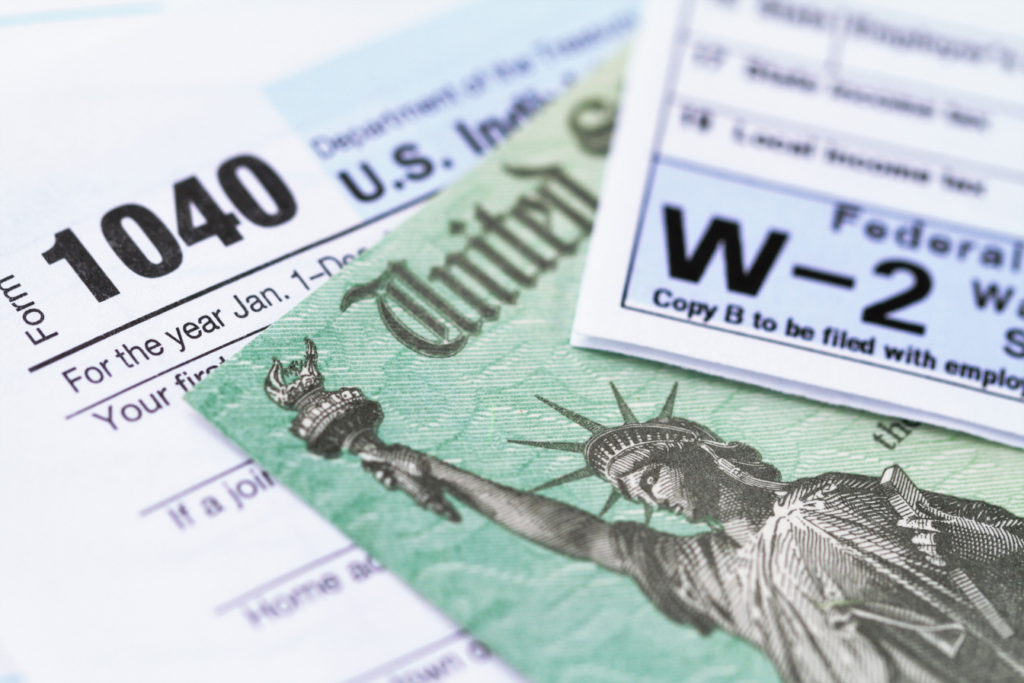Spring Cleaning Your Finance Documents After Tax Season

Whether it’s your personal or business records, the thought of sifting through stacks of financial documents can be daunting. But with some simple tips and a solid plan, this process can be not only achievable but also surprisingly beneficial. We’re here to guide you through the ins and outs of organizing post-tax season financial records, including which documents to store and which ones are ready to be purged. We’ll also provide useful tips to help you efficiently tackle a large-scale records purge, making this task as seamless as possible.
Why Tackle Your Financial Records Now?
First things first, let’s start with the basics: why is it necessary to purge financial records in the first place? For individuals and businesses alike, having too many documents creates clutter and inefficiency. It becomes harder to find important information when it’s buried under piles of unnecessary documents. Plus, holding onto old records can also pose a security risk – the longer you keep sensitive information, the more vulnerable you are to identity theft, tax fraud, and other risks.
And right after tax season is the perfect time to start organizing and purging your financial records. Not only will it give you a fresh start for the new year, but it also allows you to properly dispose of any sensitive information from the previous tax year.
What Records Should You Keep?
Before diving into your records purge, it’s important to know which documents should be kept and which ones can be discarded. The general rule of thumb according to the IRS is to keep any documentation that supports your income, deductions, and credits for at least three years after filing your tax return.
This can include:
- Income records such as W-2s, 1099 forms, and any other income statements
- Business receipts and expense reports
- Mortgage and loan statements
- Investment account statements
- Medical bills and insurance statements
- Charitable contribution receipts
Other common documents to keep include:
- Tax Returns and Supporting Documents: It’s recommended to keep copies of your tax returns for at least 7 years. In the event of an audit or if you need to file an amended return, having access to these documents can save you time and hassle.
- Financial Statements: Keep financial statements, including income statements and balance sheets, for a minimum of three years.
- Employee Financial Records: Safeguard employee records, including payroll information and tax forms, for at least seven years, according to applicable labor laws.
- Receipts and Expense Reports: Retain receipts and expense reports for business-related transactions for a minimum of three years.
What Records Should You Purge?
Now that you know which records to keep, it’s time to determine which ones can be purged. It’s important to dispose of these documents properly to avoid any potential security breaches. Experts recommend shredding most non-tax financial documents within 30-45 days.
Here are some common documents that can be safely discarded after the recommended retention period:
- Utility bills (within 30-45 days)
- Bank and credit card statements (after one year)
- Pay stubs (after one year)
- Receipts (within 30-45 days, unless for tax purposes)
- Deposit and withdrawal records (within 30-45 days)
Time-Saving Tips for a Large-Scale Records Purge
Purging financial records can seem like a daunting task, especially if you have years of documents to sift through. Here are some tips to help make the process more manageable:
- Sort through your documents in batches, starting with the oldest ones first. Before diving into the purge, organize your financial records into categories based on their retention periods. For anything you’re unsure of, double-check with the IRS or a financial advisor.
- Label records for disposal. As you sort through your documents, label any that can be safely discarded after the recommended retention period. This will make it easier to keep track of which documents are ready for disposal, and to avoid accidentally shredding important information.
- Use a professional document destruction service. For large-scale purges, it’s smart to use professional shredding services. This ensures your sensitive information is disposed of securely and with confidence. Augusta Data Storage offers convenient drop-off bulk shredding purge services for the secure disposal of confidential financial records, ideal for your post-tax purging requirements.
- Prepare your documents. Before the purge, inspect your records for items such as 3-ring binders, binder clips, and other items that can’t be shredded. Staples, small prongs, and paper clips are acceptable for professional shredders like Augusta Data Storage.
- Keep your future records organized. To avoid another massive purge in the future, establish a system for organizing new financial records as they come. For business documentation, consider digitizing records through Augusta Data Storage’s bulk document scanning for secure and easy archiving and retrieval.
Turn to Augusta Data Storage for Your Post-Tax Purge Needs
Organizing and purging your post-tax financial records can be time-consuming, but it’s an essential task for maintaining a clutter-free and secure home or office. With the help of professional shredding services from Augusta Data Storage, you can safely dispose of outdated documents while protecting your sensitive information.
We offer convenient drop-off shredding services, guaranteeing secure destruction of your documents. Our team treats every document with utmost care, providing the same level of attention and security as we do for large businesses across the CSRA.
Ready to secure your personal information and declutter your space? Contact Augusta Data Storage today for hassle-free document shredding.
